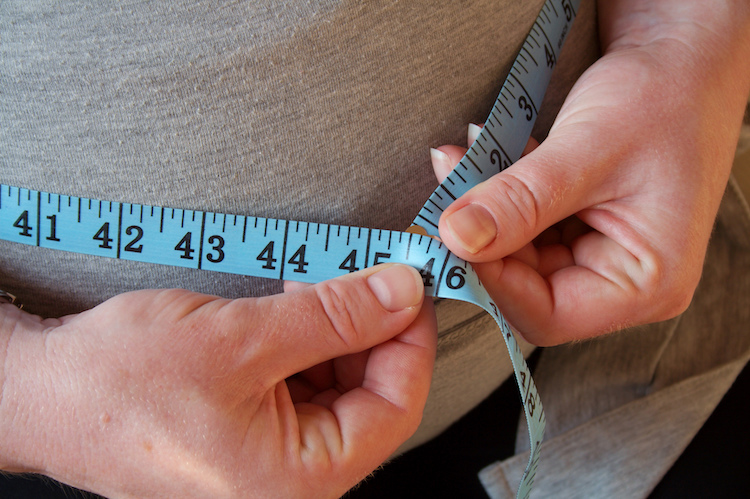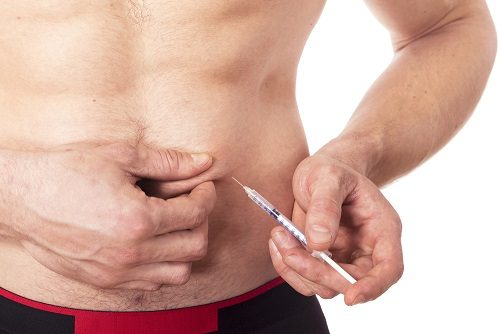
Updated May 2024
The late 19th century marked the birth of bodybuilding and strongman competitions in Europe, but it wasn’t until the 1960s, with the rise of Arnold Schwarzenegger, that these sports achieved global recognition. Schwarzenegger’s chiselled physique inspired countless men to hit the gym, but the pursuit of such extreme muscularity often pushes the human body beyond its natural limits.
While some individuals possess genetic advantages that allow them to achieve remarkable results without performance-enhancing drugs (PEDs), others, like Schwarzenegger, have admitted to using steroids when competing in bodybuilding competitions, including Mr Universe and Mr Olympia. Very quickly, performance-enhancing drugs (PEDs) became the norm for bodybuilders and athletes who were trying to push the limits of their bodies.
This surge in bodybuilding popularity led to the establishment of numerous gyms and organisations like Gold’s Gym, the International Federation of Bodybuilders (IFBB) and the United Kingdom Bodybuilding and Fitness Federation (UKBFF).
The desire for enhanced performance and physique has led many bodybuilders and athletes to explore alternative PEDs, such as human growth hormone (HGH). Human growth hormones and steroids are illegal in the UK for non-medical use. Of course, not everyone in the gym uses steroids or competes in bodybuilding competitions, but if you do use steroids or human growth hormone injections for bodybuilding, athletic, or aesthetic reasons, you are far from alone.
Human growth hormone (HGH or GH) is a naturally occurring hormone produced by the pituitary gland. It plays a crucial role in growth, cell regeneration, and tissue repair. It is primarily produced in the growth stage of life, peaking at puberty and then slowly declining later in life. HGH helps build, repair and maintain brain and organ tissue, build bones, and promote cell growth and regeneration.
For over 45 years, HGH has been used therapeutically to treat various medical conditions, including growth hormone deficiency, kidney disease, AIDS-related muscle wasting, and short bowel syndrome. The FDA has approved the use of human growth hormones for children with idiopathic short stature and adults with AIDs and growth hormone deficiency.
HGH treatment in the UK and around the world is also prescribed to combat:
• Loss of muscle mass
• Increased abdominal fat
• Decreased sexual performance
• Lack of energy
• Mood swingsZ
• Disrupted sleep.

Human growth hormone replacement therapy is an effective treatment for those who suffer from short-term or long-term pituitary disorders. The benefits of this natural remedy include increased muscle mass, better sleep patterns and reduced fatigue while promoting faster healing rates after exercise sessions. If you’re concerned that you might have a growth hormone deficiency, you should book a consultation with a doctor.
Signs of growth hormone deficiency you can look out for include:
• More body fat, particularly around the waist
• Reduced bone mass, which can lead to osteoporosis
• Struggling to build muscle mass
• Feeling anxious or depressed
• Exhaustion or fatigue
• Sensitivity to temperatures.
You should also be mindful that this list is not exhaustive, and even if you have one or several of the symptoms listed, it doesn’t mean you have a growth hormone deficiency.
Bodybuilders and athletes often turn to HGH to increase lean muscle mass, reduce body fat, and potentially improve recovery. While some studies suggest that HGH may offer these benefits, the evidence is not conclusive, and the long-term effects of HGH use for non-medical purposes remain unclear. Human growth hormones are also used by bodybuilders and athletes to prevent or slow down ageing. However, there is very little evidence that human growth hormones reduce signs of ageing, but HGH may make you feel younger and more energetic.
One key benefit shown by the research of injecting HGH is an increase in lean muscle mass and a decrease in body fat. So, if you have a hard time putting on muscle or keeping off fat, you may see an improvement after using human growth hormone injections. Results will vary, but the overall consensus is that growth hormone is not the miracle some claim it to be.
HGH therapy can have numerous benefits, and while not all of these will be felt by everyone, a good doctor should be able to set realistic expectations about what you can achieve. Results are not going to happen overnight, but over time, HGH treatment can have the following benefits:
The best results will come with treatments administered for months and sometimes years to optimise your body’s natural production of HGH levels.
When used under medical supervision, human growth hormone injections can have tremendous benefits. However, without the guidance of a doctor, taking HGH can have severe and dangerous side effects. A professional doctor, such as Dr Tan, will use blood/urine tests to monitor HGH levels during the treatment to combat any side effects.
Short-term potential side effects include:
• Joint problems
• Muscle aches
• Headaches
• Nausea
• Swelling in the arms and legs (oedema).
Long-term side effects include:
• Changes in blood sugar insulin (and Type 2 diabetes)
• Carpal tunnel syndrome
• Increased risk of certain types of cancer
• Enlargement of breast tissue (gynecomastia)
• Increased risk of certain cancers
• High blood pressure
• Liver damage.
Another long-term side effect of using too much GH is acromegaly, a condition that can cause excessive growth of the face, hands and feet. This is why bodybuilders and athletes injecting HGH regularly cycle it with steroids to try to mitigate the side effects.
Talk to your prescribing doctor immediately if you are taking growth hormones and experiencing any of the above symptoms. Alternatively, if you are concerned about any of the above symptoms or are curious to see other ways that human growth hormone injections could help you, our men’s health specialists at Harley Street MD are here to help.
Both HGH and steroids are banned by the World Anti-Doping Agency (WADA), which was established in 1999. While HGH may be perceived by some as a safer alternative to steroids, it’s crucial to understand that both substances pose considerable health risks. Neither should be used without the close supervision and monitoring of a qualified medical professional.
In the UK, HGH is a prescription-only medication and can only be legally obtained from a doctor for approved medical conditions. Purchasing HGH from unregulated sources is illegal and can be dangerous, as the quality and purity of the product cannot be guaranteed. One indisputable thing is the safest way to use human growth hormone injections is under a medically supervised programme.
Selecting the right healthcare provider for HGH therapy is crucial for your safety and well-being. Here are some key factors to consider when making your decision:
• Licensed medical professional: Ensure your specialist is a GMC-registered doctor with appropriate qualifications in endocrinology or a related field.
• Specialised experience: Look for a practitioner with specific expertise in men’s health, hormone therapy, and HGH treatment.
• Thorough assessment: The specialist should conduct a comprehensive medical evaluation, including blood tests and a detailed consultation, to determine if HGH therapy is right for you.
• Personalised treatment plan: Your treatment plan should be tailored to your individual needs and goals based on the results of blood tests and your medical evaluation.
• Ongoing monitoring: The specialist should monitor your progress with regular blood tests throughout treatment to ensure optimal results and safety.

For many, the idea of self-injecting can be intimidating. However, with proper preparation and understanding, you can minimise anxiety and ensure a smooth experience. While the information below is intended for educational purposes, it’s important to emphasise that at Harley Street MD, we strongly advise against injecting HGH without medical supervision.
• Storage: Proper storage is crucial for maintaining the effectiveness of your HGH injections. Store cartridges in the refrigerator between 2 to 5 degrees Celsius (36 to 41 degrees Fahrenheit). If a cartridge is accidentally left out overnight, it can still be used if returned to the refrigerator promptly.
• Timing: For optimal results, administer HGH injections just before bed, ideally about an hour before sleep. Consistency is key, so try to inject at the same time each night. If you miss a dose, do not double up on the next one. Avoid injecting before 5 pm unless otherwise instructed by your healthcare provider.
• Injection Sites:
• Back of each arm
• Top or outside of each thigh
• Sides of the abdomen
• Outer area of the buttocks.
Choose four of these sites and rotate between them with each injection. Keeping a journal to track injection sites, times, and cartridge usage can be helpful.
• Cartridge Usage: Due to the cost of HGH, it’s important to use cartridges efficiently. Use the entire contents of each cartridge before starting a new one. If you’re short of a dose, you can administer a second injection from the next cartridge. Always dispose of used cartridges and needles safely according to local guidelines.
Important Note: This information is not a substitute for professional medical advice. Always consult with a qualified healthcare provider before starting any new medication or treatment.
Bodybuilders and athletes who use HGH often structure their usage in cycles involving alternating periods of HGH administration with periods of rest. These HGH cycles typically last for several weeks or months, followed by an “off-cycle” period where HGH is discontinued. The purpose of cycling is to maximise the benefits of HGH while minimising potential side effects and the risk of developing a tolerance to the hormone.
Following an HGH cycle, some individuals may choose to undergo post-cycle therapy (PCT). PCT involves using medications or supplements to restore the body’s natural hormone production, which may be suppressed during HGH use. PCT can also help mitigate potential side effects such as fatigue, mood swings, and decreased libido.
The specific duration and protocols of HGH cycles and PCT can vary depending on individual goals, experience, and the guidance of a qualified medical professional. It is crucial to consult with a healthcare provider before starting any HGH cycle or PCT program to ensure safety and effectiveness.
While certain lifestyle factors can naturally boost growth hormone (GH) levels, genetics also play a significant role. HGH therapy can unlock your body’s full potential, but it’s essential to remember that diet, nutrition, and lifestyle are crucial for maximising the benefits of HGH injections.
• Diet: A healthy diet is fundamental for anyone, but it’s especially important when undergoing HGH therapy. A higher protein intake of 0.7 to 1 gram per pound of body weight can support muscle growth and repair, aligning with the goals of GH therapy. Focus on whole, unprocessed foods rich in nutrients and vitamins. Minimise or eliminate processed foods, sugary drinks, and unhealthy fats.
• Nutrition: A balanced diet should provide most of the essential vitamins and minerals your body needs. However, certain supplements like creatine, omega-3 fatty acids, and magnesium glycinate may further enhance your results.
• Lifestyle: Regular exercise is vital for optimising the benefits of HGH therapy. Whether your goal is bodybuilding or general well-being, a consistent workout routine is key. Tailor your exercise plan to your specific objectives, but aim for at least three strength training sessions per week, complemented by Zone 2 cardio for cardiovascular health.
Choosing the right doctor for human growth hormone (HGH) therapy is crucial in your wellness journey. If you have a diagnosed medical condition like Turner syndrome, your GP is the best starting point. However, if you’re exploring HGH to enhance muscle mass, combat ageing, or improve overall well-being, a specialist like Dr Chia Tan at Harley Street MD can offer expert guidance.
As one of the few Care Quality Commission (CQC) registered clinics in London specialising in HGH treatment, Harley Street MD provides a comprehensive and personalised approach:
1. In-Depth Evaluation: We begin with a thorough assessment, including blood tests to measure your current HGH levels and a consultation with a hormone specialist. This helps us understand your unique needs and goals.
2. Personalised Treatment Plan: Based on your assessment, our specialists will develop a tailored HGH therapy plan that aligns with your individual requirements and expectations.
3. Expert Guidance and Ongoing Support: We provide comprehensive support throughout your treatment journey, including education on self-administration (if applicable) and regular monitoring to ensure optimal results and safety.
At Harley Street MD, we prioritise your privacy and comfort, offering a discreet and professional environment where you can openly discuss your concerns and goals. Our team is committed to helping you achieve optimal health and well-being through safe and effective HGH therapy.
As with all types of medical treatments, there will be associated side effects, and it’s important to be aware of these so you can adjust the dose or stop the treatment if necessary. A review of the research into recombinant human growth hormone (rGH) therapy, which studied both the short and long-term effects, demonstrates that rGH therapy has had an exemplary track record of safety and efficacy.
As with any medication, it’s essential to weigh the potential benefits against the risks and consult with a qualified healthcare provider to determine if HGH is right for you.
HGH is sometimes used by men for athletic or aesthetic purposes due to its potential to increase muscle mass and reduce body fat. Some anecdotal reports suggest improved athletic performance, but scientific evidence supporting this is limited. HGH is also banned by many sports organisations, further hindering research.
Studies on growth hormones in athletes have shown that HGH can increase lean body mass (including muscle and fluid), but it’s important to note that this doesn’t necessarily translate to improved strength or athletic ability.
Many people use a combination of steroids and HGH to get maximum results in the gym. Although combining HGH with steroids is common among some athletes and bodybuilders to mitigate the side effects, this should only be considered under strict medical supervision.
While there’s no scientific evidence to support HGH as a preventative measure for ageing, some effects of HGH therapy, such as increased muscle mass, reduced body fat, improved bone density, and enhanced skin quality, may contribute to a more youthful appearance and feeling.
However, using HGH solely for anti-ageing purposes is not recommended. HGH is a potent hormone with potential side effects, and its use should be reserved for specific medical conditions. If you’re interested in anti-ageing treatments, speaking to a professional for medical advice is the best option. They may recommend an alternative solution like Botox or a Non-Surgical Facelift, as opposed to human growth hormone injections.
The research and study references we used, in addition to our internal research, have all been referenced here; most of them have an external link to the scientific publication. We work hard to bring you the most recent, impartial, factual, and evidence-based information to help you make informed decisions.
• Arnold Schwarzenegger. From: Wikipedia
• Growth hormone: uses and abuses. Apr 17, 2004. From NIH
• Growth hormone, athletic performance, and ageing. August 13, 2021. From: Harvard Health Publishing
• Effects of Human Growth Hormone in Men over 60 Years Old. From: The New England Journal of Medicine
• Acromegaly From: Healthline
• Zone 2 cardio is the secret fitness weapon hiding in plain sight. May 5, 2023. From: GQ
• Growth Hormone and Treatment Controversy; Long Term Safety of rGH. Jan 26, 2013. From: NIH
• Growth Hormone and Aging: Updated Review. May 11, 2018. From: NIH